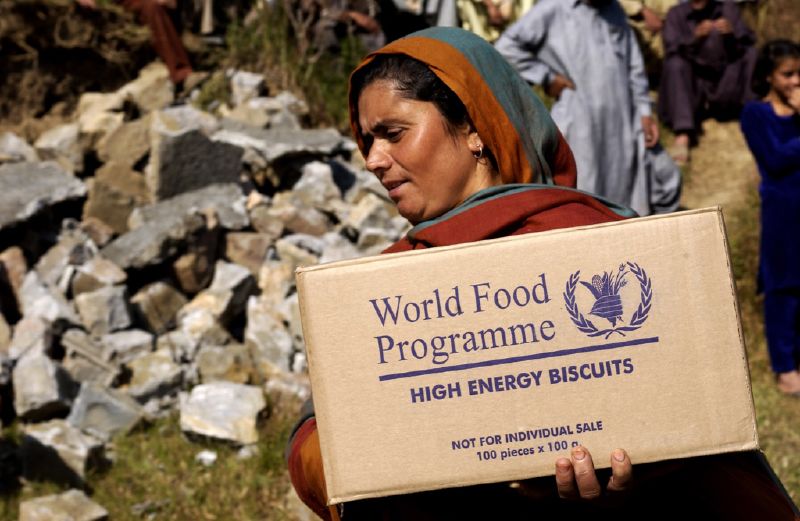
 Secretary of State Hillary Clinton will receive the George McGovern Leadership Award from the World Food Program tonight for advancing U.S. and international efforts to address global hunger. Among her continued efforts to improve U.S. development aid abroad, Senator Clinton started the Feed the Future initiative, a program that targets countries struggling to provide their citizens with adequate access to food. The program has garnered widespread international support and has received $22 billion in pledges.
Secretary of State Hillary Clinton will receive the George McGovern Leadership Award from the World Food Program tonight for advancing U.S. and international efforts to address global hunger. Among her continued efforts to improve U.S. development aid abroad, Senator Clinton started the Feed the Future initiative, a program that targets countries struggling to provide their citizens with adequate access to food. The program has garnered widespread international support and has received $22 billion in pledges.
Since taking office, Secretary Clinton has taken innovative steps to bring the issues of global hunger to the forefront of the development discussion. She has sought to modernize U.S. development policy and more successfully alleviate hunger and poverty around the world. She has described the need for further public-private industry collaboration with companies like Coca-Cola, that have effectively delivered products to hard-to-reach locations worldwide and NGOs that are already actively working to achieve the shared goal of alleviating hunger around the world.
In another major step for development funding, The Feed the Future initiative has allocated 9% of its funding for research and development for international aid innovation. As USAID Administrator Rajiv Shah said at the USGLC Annual Conference, technologies developed through government programs like DARPA have had an incredible impact on international development. Secretary Clinton has recognized the role that science and technology can play in global aid. Beyond the Feed the Future initiative, Secretary Clinton created the Norman Borlaug Research Institute to explore the role of science and technology in global development and humanitarian aid.
But questions do remain about Feed the Future. We look forward to the Administration’s designation of a lead authority, whereas currently it is being led by two deputy directors, as well as a transparent process for monitoring deliverables to ensure the program’s long term success.